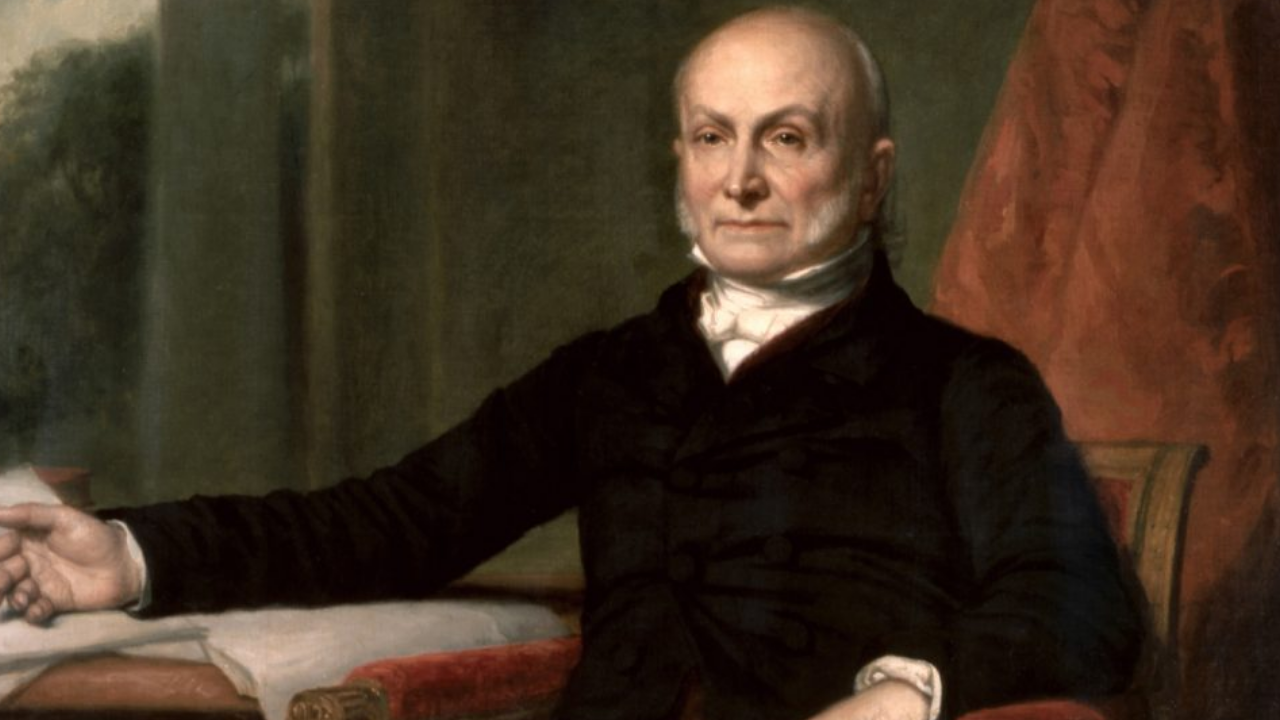John Quincy Adams was an American statesman, a diplomat who served as the sixth president of the United States, from 1825 to 1829. He is known to be one of America’s greatest diplomats (formulating, among other things, what came to be called the Monroe Doctrine). In his presidential years, he conducted a consistent and often dramatic fight against the expansion of slavery.
John Quincy Adams was born on July 11, 1767. Adams initially avoided becoming directly involved in politics, and instead focused on building his legal career. In 1794, Washington appointed Adams as the U.S. ambassador to the Netherlands. Adams also served as an ambassador and as a member of the United States Senate and House of Representatives representing Massachusetts. He stayed in office as the president from 1825 to 1829. During his time in Congress, Adams became increasingly critical of slavery and fought against it in his post-presidential years. He passed away on February 23, 1848.
1 Always vote for principle, though you may vote alone, and you may cherish the sweetest reflection that your vote is never lost. -John Quincy Adams
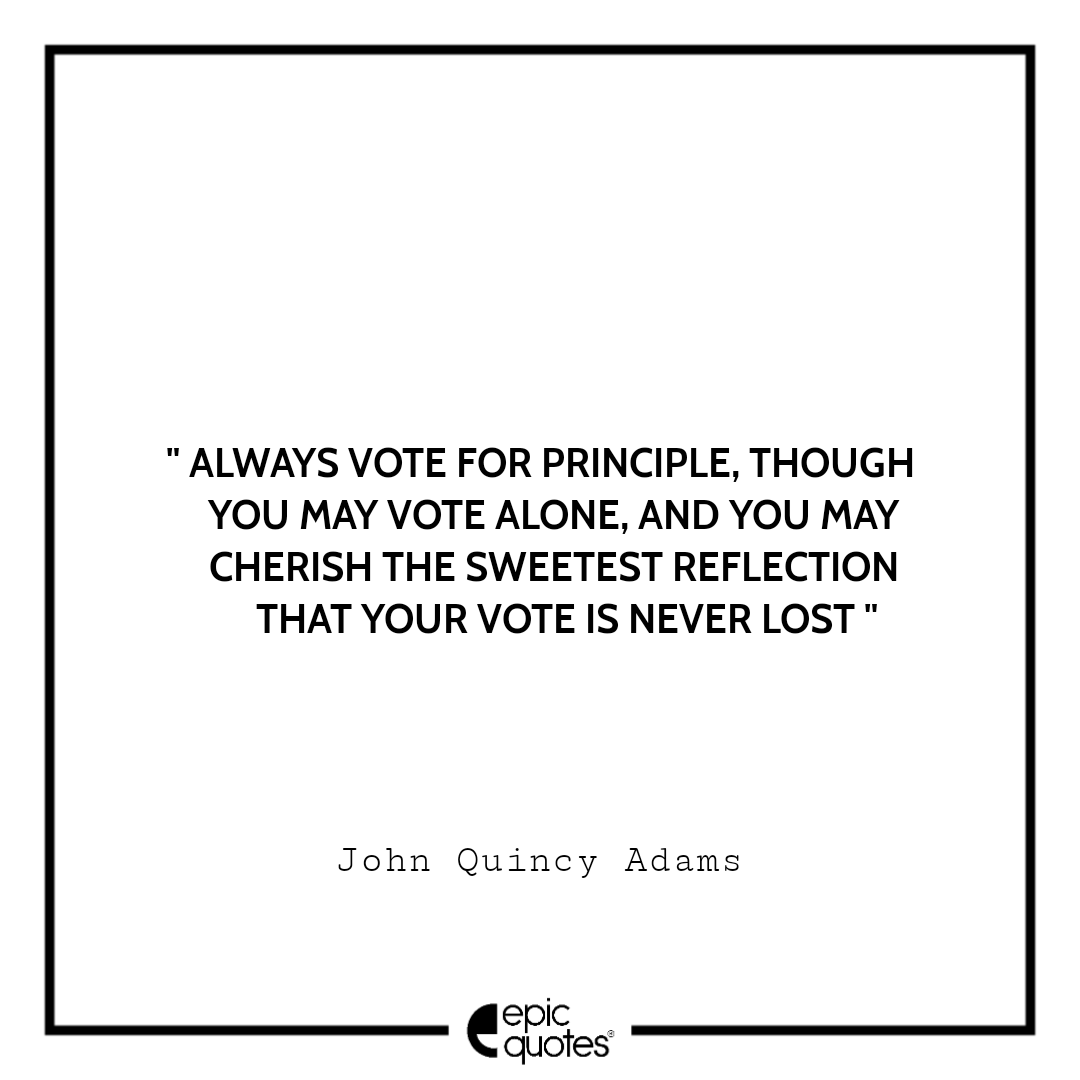
Your vote is precious and very important. Place your votes based on the principles and ethics of the candidates. Even if yours is the only vote, you will have the gratification of having done the right thing.
2 Patience and perseverance have a magical effect before which difficulties disappear and obstacles vanish. -John Quincy Adams
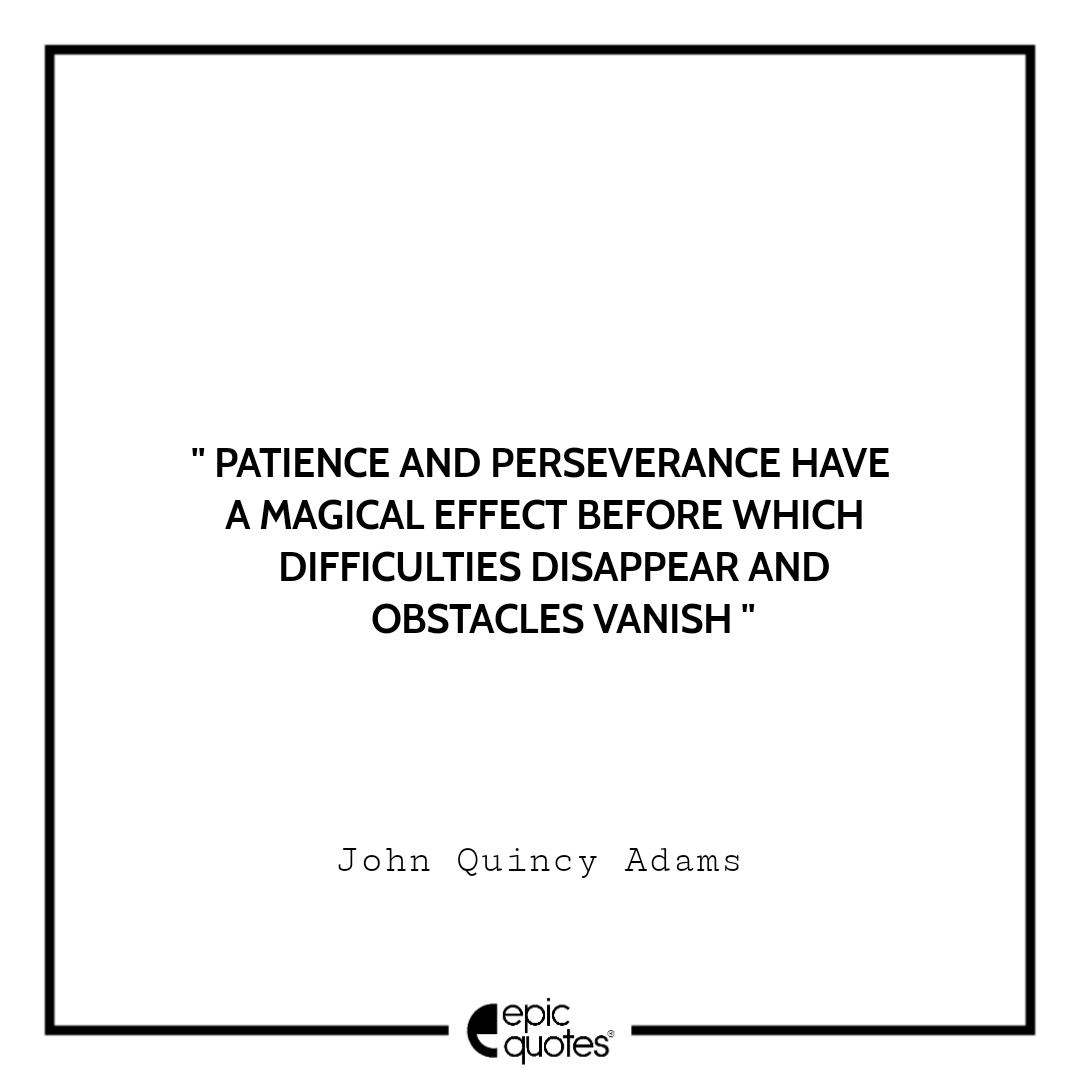
Patience and perseverance can take you a long way in life. No matter what challenges life throws at you, you can overcome them if you put your heart to it and keep moving forward.
3 All men profess honesty as long as they can, to believe all men honest would be folly, to believe none so is something worse. -John Quincy Adams

Not everyone in the world is honest and to believe so is foolish. But that doesn’t mean everyone is dishonest and deceitful. Though every man preaches honesty, very few live up to that.
4 Democracy, pure democracy, has at least its foundation in a generous theory of human rights, it is founded on the natural equality of mankind. -John Quincy Adams
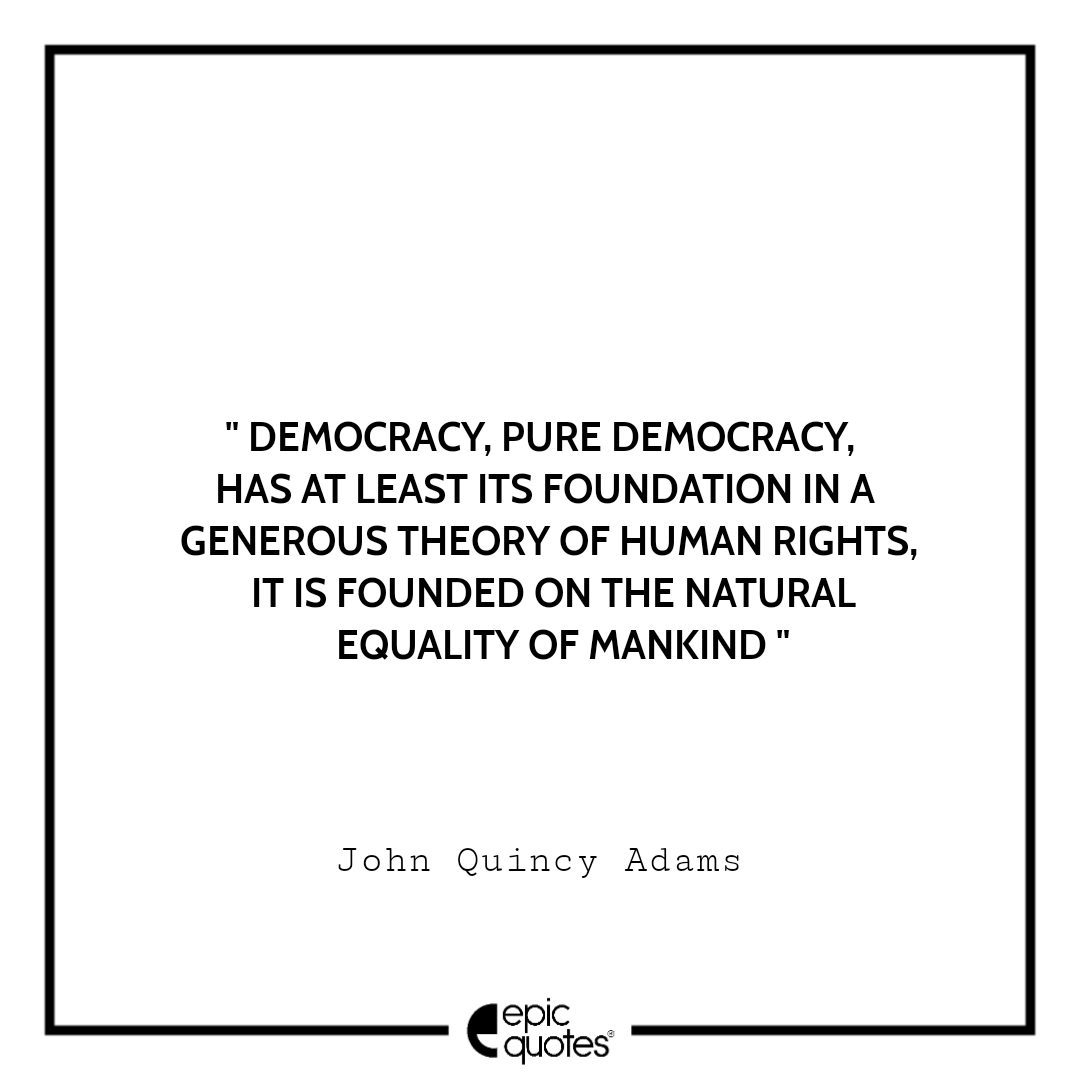
Democracy is based on the principles of equality. It exists to ensure each and every citizen the access to equal opportunities and rights. Democracy is the guardian of liberty and personal rights.
5 Heaven has given to every human being the power of controlling his passions, and if he neglects or loses it, the fault is his own. -John Quincy Adams
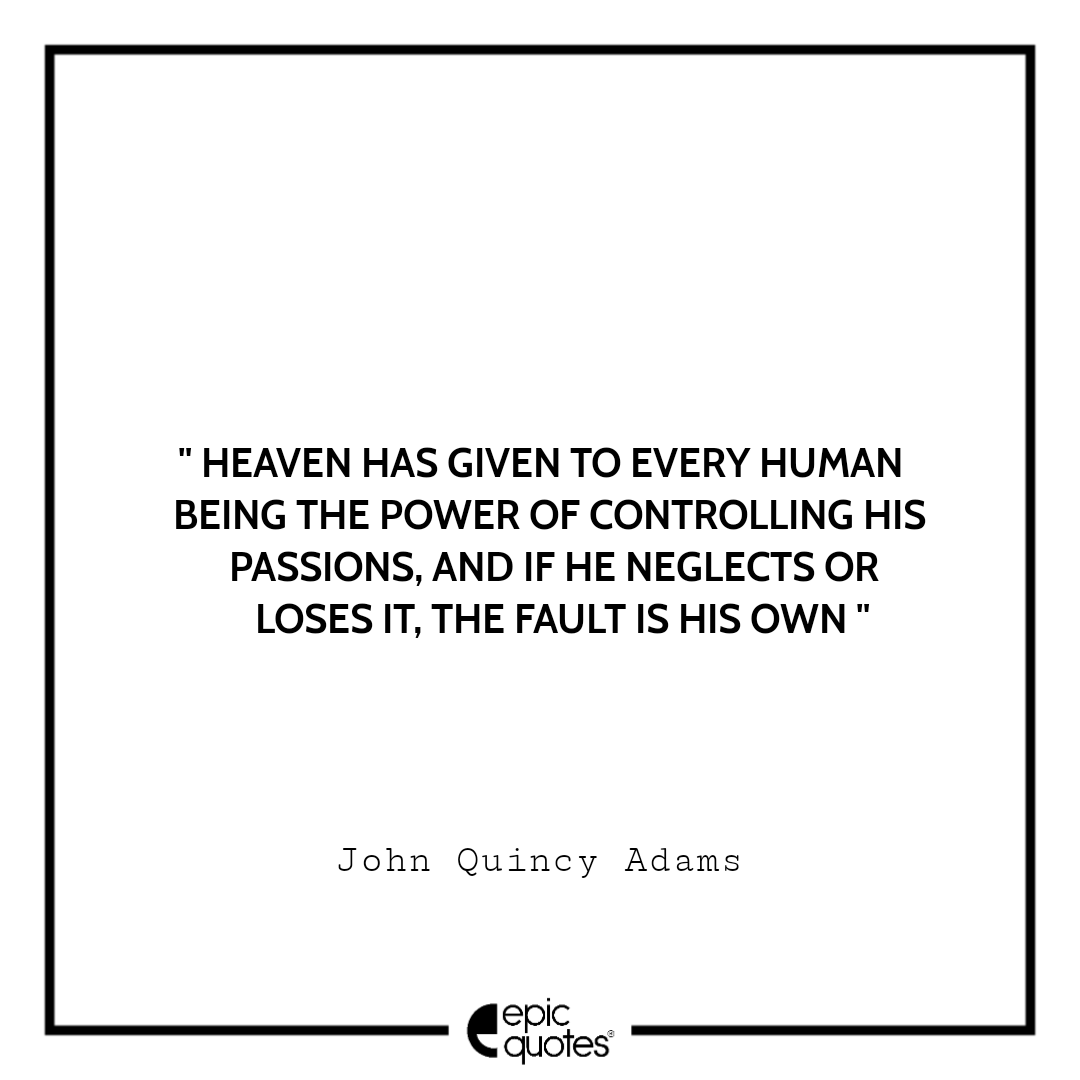
Every person has the innate power to resist temptations and control his passions. Those who cannot do so are prisoners of their own temptations and they will have to suffer the consequences all by themselves.
6 The great object of the institution of civil government is the improvement of those who are parties to the social compact. John Quincy Adams

The intent of the institutions of democracy should be the improvement and progress of all its citizens. That is what the government should aim for.
7 According to the Stoics, all vice was resolvable into folly: according to the Christian principle, it is all the effect of weakness. -John Quincy Adams
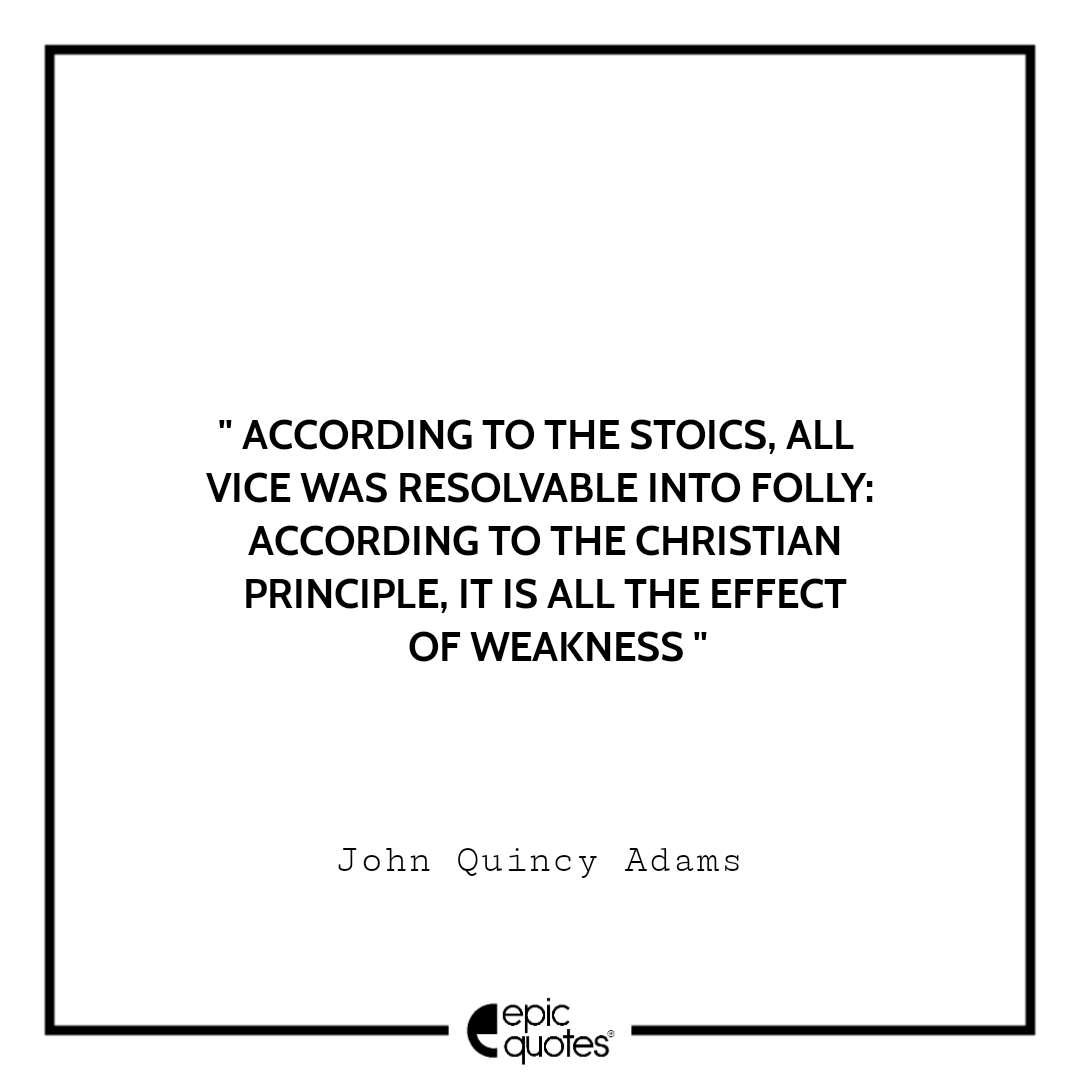
All the vices that men indulge in are results of their inherent weakness. People with rigid consciences and strong will power will be able to resist temptations and control their urges.
8 If your actions inspire others to dream more, learn more, do more and become more, you are a leader. -John Quincy
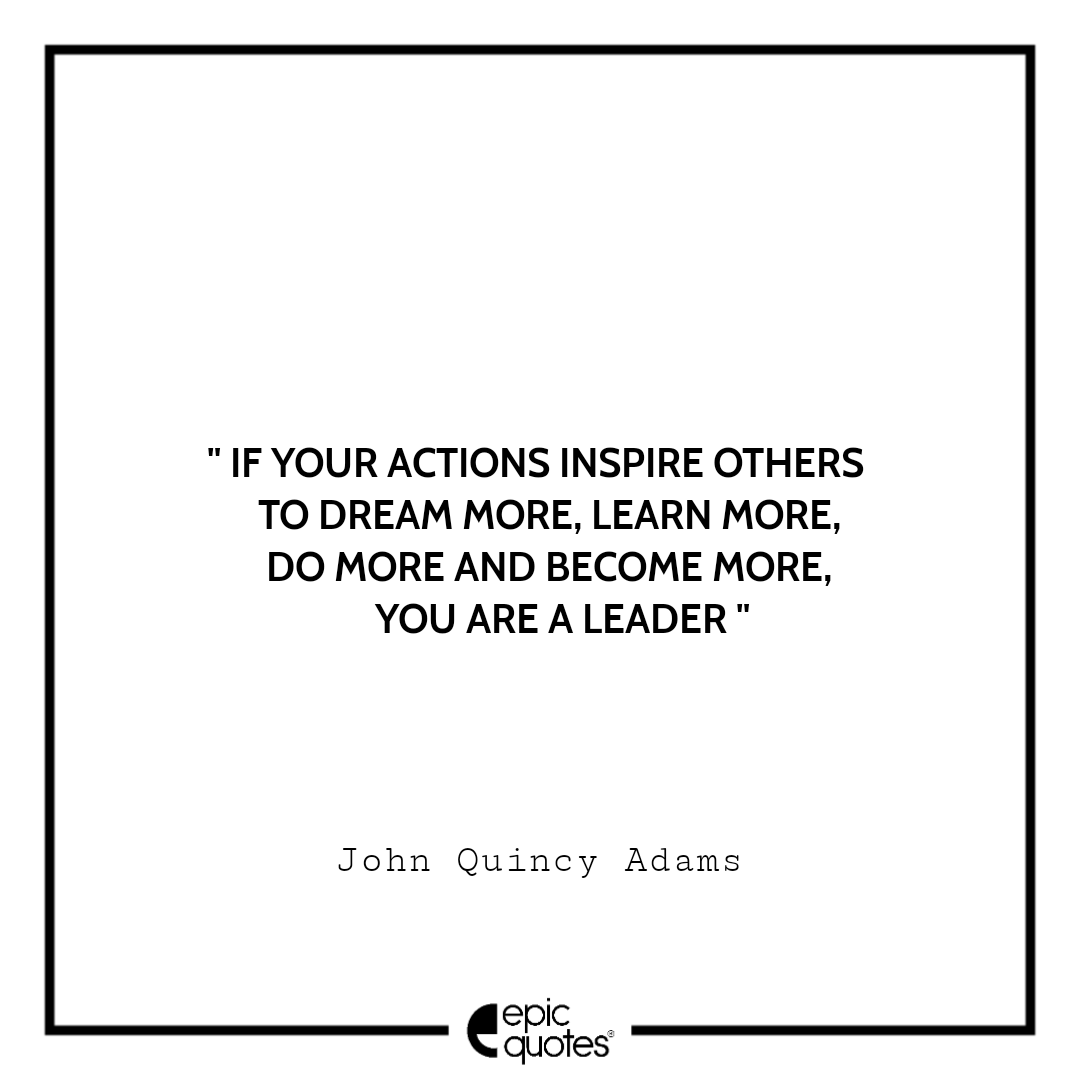
A true leader is one who can inspire others to better themselves. It is the quality of a leader to show people the right way and help in their progress and improvement. They inspire them to learn and to effectively become better.
9 Gratitude, warm, sincere, intense, when it takes possession of the bosom, fills the soul to overflowing. -John Quincy Adams
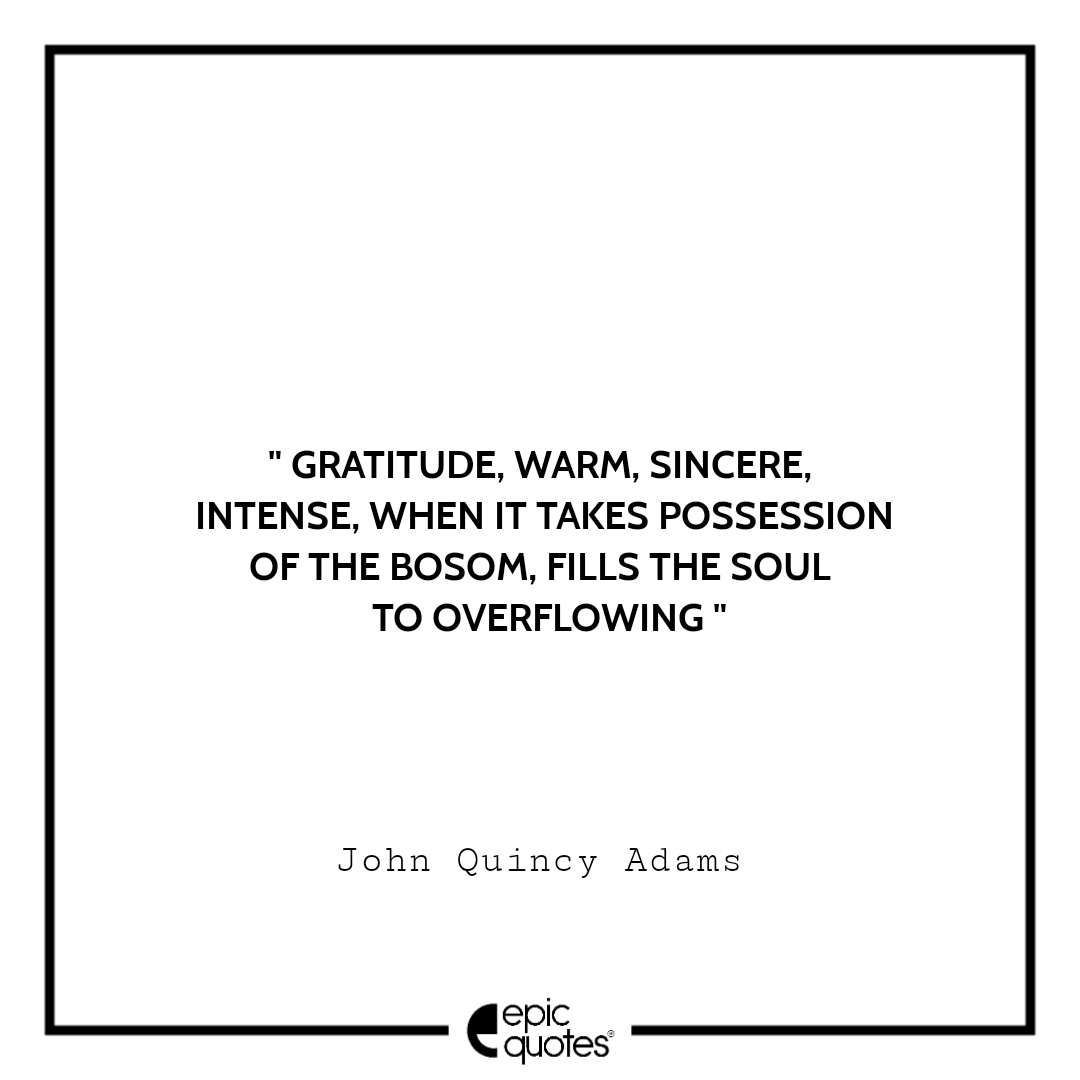
Gratitude is a virtue that naturally brings you joy and happiness. It makes you a better, kinder human.
10 Nip the shoots of arbitrary power in the bud, is the only maxim which can ever preserve the liberties of any people. -John Quincy Adams
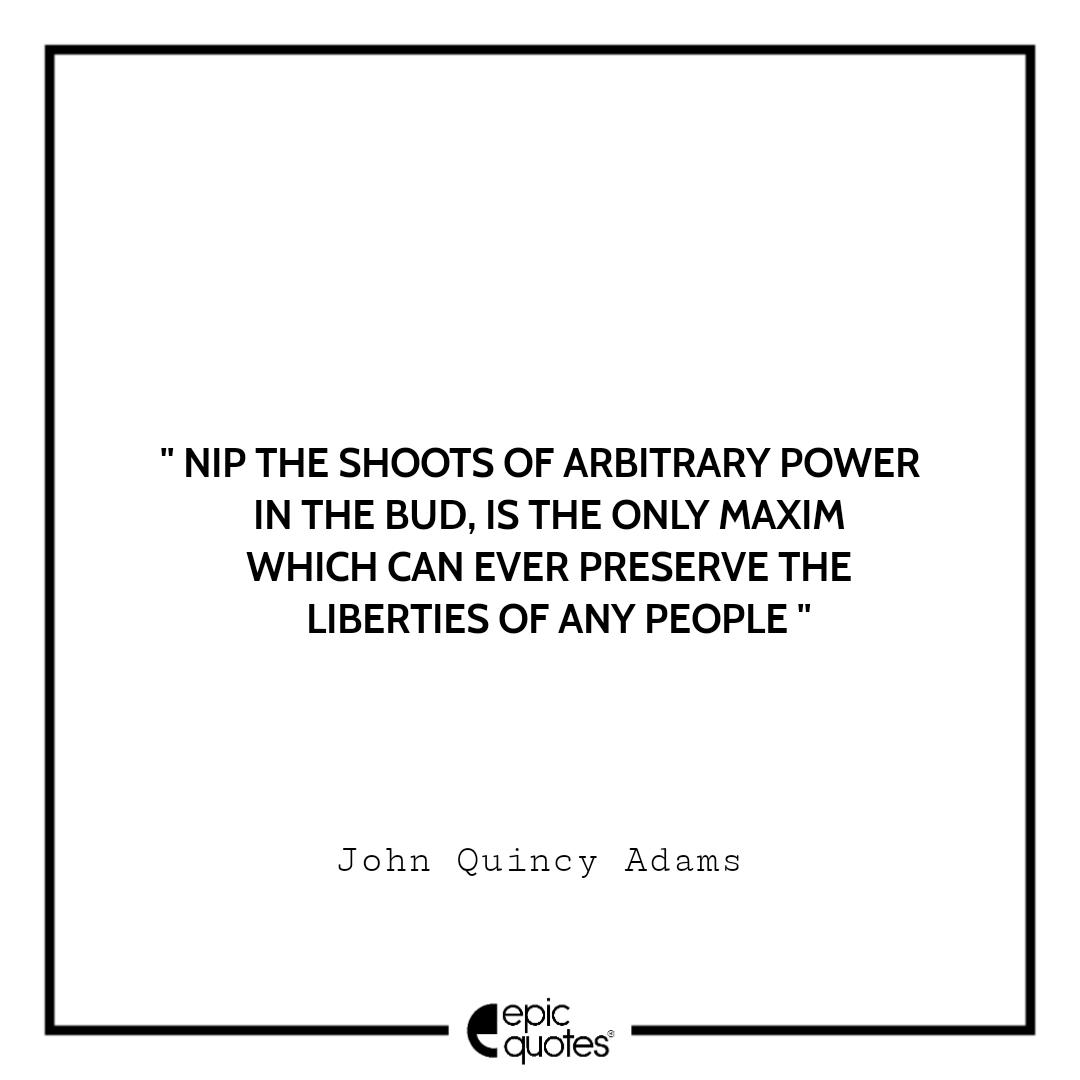
Power is a very dangerous thing. It absolutely corrupts those who try to hold on to it. And arbitrary power in the hands of the few jeopardizes the liberty of the masses. Such power needs to be destroyed at the start before it is allowed to grow.
11 It is of no use to discover our own faults and infirmities unless the discovery prompts up to amendment. -John Quincy Adams
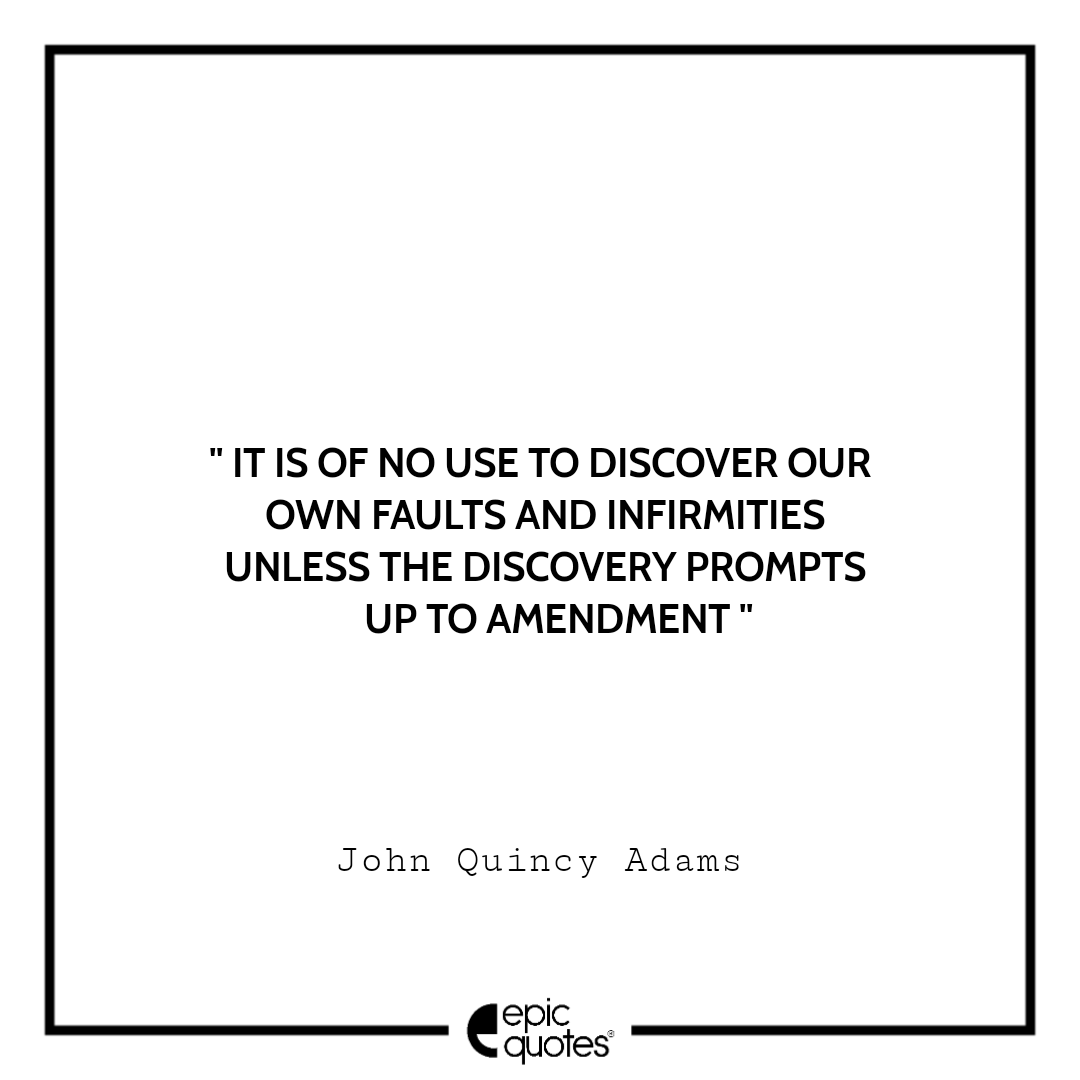
Unless and until you are ready to improve upon your shortcomings, there is no use of finding faults within yourself. Introspection is wasted if you have no plans to better yourself.
11 Best Quotes By John Quincy Adams!
1. Always vote for principle, though you may vote alone, and you may cherish the sweetest reflection that your vote is never lost. -John Quincy Adams
2. Patience and perseverance have a magical effect before which difficulties disappear and obstacles vanish. -John Quincy Adams
3. All men profess honesty as long as they can, to believe all men honest would be folly, to believe none so is something worse. -John Quincy Adams
4. Democracy, pure democracy, has at least its foundation in a generous theory of human rights, it is founded on the natural equality of mankind. -John Quincy Adams
5. Heaven has given to every human being the power of controlling his passions, and if he neglects or loses it, the fault is his own. -John Quincy Adams
6. The great object of the institution of civil government is the improvement of those who are parties to the social compact. John Quincy Adams
7. According to the Stoics, all vice was resolvable into folly: according to the Christian principle, it is all the effect of weakness. -John Quincy Adams
8. If your actions inspire others to dream more, learn more, do more and become more, you are a leader. -John Quincy
9. Gratitude, warm, sincere, intense, when it takes possession of the bosom, fills the soul to overflowing. -John Quincy Adams
10. Nip the shoots of arbitrary power in the bud, is the only maxim which can ever preserve the liberties of any people. -John Quincy Adams
11. It is of no use to discover our own faults and infirmities unless the discovery prompts up to amendment. -John Quincy Adams

